TALLAHASSEE, Fla. — Luz Acosta-Pandolphi was happy to be among the crowd gathered in the state Capitol courtyard Thursday afternoon to celebrate National School Choice Week. For her family, education choice is multigenerational.

Her daughter went to an Avant School of Excellence, which serves students in elementary, middle and high school at locations in Tallahassee and Florida City near Miami. Now, her two grandsons attend the school.
“It is a school where they fit in perfectly,” she said. One grandson has dyslexia and now can read at grade level, thanks to Avant, she said. State K-12 school choice scholarships make it affordable to send both boys.
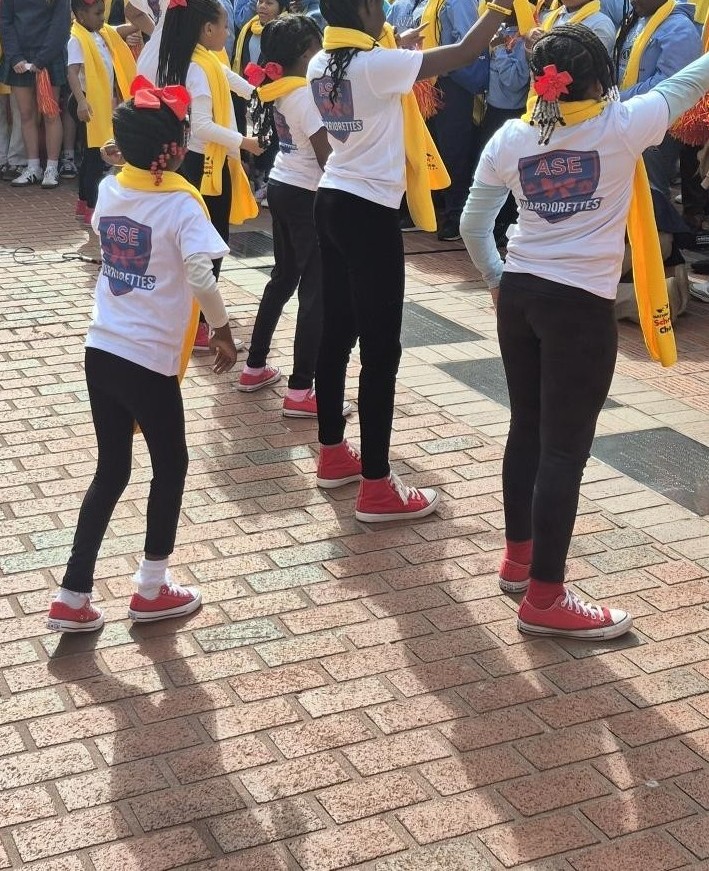
“We wanted to be here to support choice,” Acosta-Pandolphi said.
She wasn’t alone. About 1,000 students showed up with their parents and school leaders to celebrate Florida’s many learning options and the fact that the Sunshine State is a national leader in education choice.
They sang the national anthem. They listened to a group of students at a classical charter school recite Ralph Waldo Emerson’s 1837 poem “Concord Hymn,” which includes themes of sacrifice and freedom. They danced.
Several state lawmakers joined the celebration. As bills were being debated inside, it was all harmony in the paved courtyard. Only smiles, red and yellow balloons, and a celebration of the right of families to choose the best education for their children.
“How meaningful it is to stand here with you today, surrounded by families and students and teachers and education leaders whose lives are shaped every day by the power of the right educational fit,” said state Rep. Jennifer Canady, R-Lakeland. “Here in Florida, we are doing something truly special.”
Canady, a former teacher who holds a master's degree in special education, is the chairperson of the House Education & Employment Committee and was elected to be Florida’s first female House speaker in 2027.
Other state representatives who spoke included Reps. Michelle Salzman, R-Pensacola; Alex Rizo, R-Hialeah; and Yvette Benarroch, R-Marco Island.
School leaders stood up and praised state leaders for realizing that when it comes to education, one size does not fit all, and for empowering parents to direct their children’s education.
The celebration was co-sponsored by Americans for Prosperity Foundation and the National School Choice Awareness Foundation, both 501c3 organizations. Shenell Ellerbe, said choice had made a difference for her daughter, Subi, who attends the Digital Academy of Florida, a virtual school that Ellerbe said best fits Subi’s unique needs.
“It also provides flexibility, which is good because we travel,” Ellerbe said. She said Subi, who is in high school, is thriving and wants to attend college and study botany. She said having the ability to choose the best fit for Subi has made a significant difference for her academically.
“We felt it was important to come out here and show our support for choice,” Ellerbe said. The season open for scholarship applications for the 2026-27 school year is Feb. 1. Visit Step Up For Students to apply.
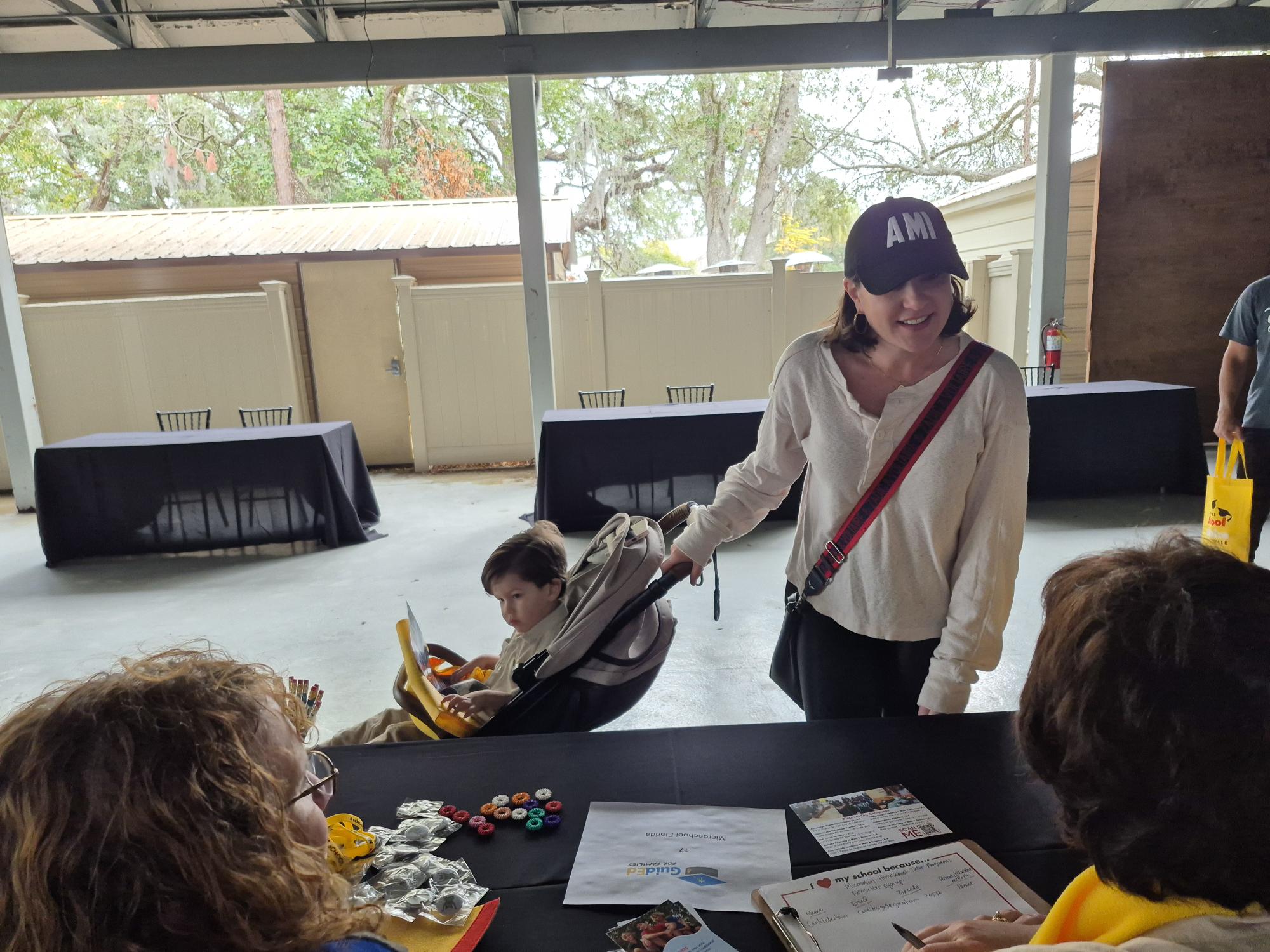
Gevrey Lajoie visited a School Choice Safari event to learn about options for her son, Elijah. The event was sponsored by GuidEd, one of the many organizations springing up in states that have granted parents the flexibility to choose the best educational fit for their children.
TAMPA, Fla. — Parents, many pushing babies in strollers with school-age children in tow, made their way through the covered pavilion as they surveyed the brightly decorated tables representing 28 local schools.
Their goal: To gather as much information as possible as they try to figure out the best educational fit for their children, either for the 2025-26 school year or beyond.
“We’re all over the place with which school,” said Gevrey Lajoie of South Tampa. Her son, Elijah, is only 3, but she said it’s not too early to begin looking at options. A mom friend told her about the School Choice Safari at ZooTampa at Lowry Park. It would give her a chance to check out many schools all in one place and learn about state scholarship programs.
Lajoie isn’t alone. For this generation of Florida families, gone are the days of simply attending whatever school they’re assigned based on where they live. Families actively shop for schools; schools actively court them, and districts perpetually create new programs.
And while the benefits are clear, some families end up feeling adrift in a sea of choices.
 New organizations are springing up to help families find their way. "A variety of options are out there, and the number is growing, but families don’t know how to navigate them. There was no place for them to go to get help,” said Kelly Garcia, a former teacher who serves on Florida’s State Board of Education.
New organizations are springing up to help families find their way. "A variety of options are out there, and the number is growing, but families don’t know how to navigate them. There was no place for them to go to get help,” said Kelly Garcia, a former teacher who serves on Florida’s State Board of Education.
In 2023, the Tampa Bay area resident and her brother-in-law, Garrett Garcia, co-founded GuidEd, a nonprofit organization that provides free, impartial guidance to help families learn about available options so they can find the best fit for their children.
The organization hosts a bilingual call center where families can get information about all options in Hillsborough County, from district and magnet schools to charter schools, private schools, religious schools, online schools and even homeschooling. GuidEd also helps families sift through the various state K-12 scholarship options. The group also hosts live events, such as the School Choice Safari, to connect families and schools.
Organizations are cropping up all over the country, especially in areas with lots of choices. Their specific missions and business models vary, but they are united by a common theme: They help families navigate an evolving education system where they have the power to choose the best education for their children
Jenny Clark, a homeschool mom and education choice advocate, saw the need for a personal touch in 2019 when she launched Love Your School in Arizona.
“One of the most important aspects of our work is knowing how to listen, evaluate, and support parents who want to talk to another human about their child's education situation,” said Clark, who had seen parents struggle with the application process surrounding the state’s new education savings accounts program. The program has since expanded to West Virginia and Alabama.
Clark’s nonprofit provides personalized support through its Parent Concierge Service, which offers parents the opportunity for phone consultations with navigators. Love Your School also provides free online autism and dyslexia guides and details about the legal rights of students with disabilities, and it hosts an online community where parents can get support.
“Our services are unique because we pride ourselves in being experts in special education evaluations and processes, which are required for higher ESA funding, public school rights and open enrollment, experts in the ESA program law and approved expenses, and personalized school search and homeschool support,” Clark said.
Kelly Garcia, GuidEd’s regional director, has hosted several in-person events that feature free snacks, face painting, magicians, and prize giveaways in addition to booths staffed by schools and other education providers. During the recent event, parents could visit a booth to learn more about the state’s K-12 education choice scholarship programs.
Garcia, whose organization prioritizes neutral advice about all choices, including public schools, advises parents to start by assessing their child’s needs and then identifying learning options that would best serve them. GuidEd’s philosophy is to trust parents to determine the best environment for their kids.
At the School Choice Safari, families got to check out private schools, magnet schools and charter schools.
“There’s a school out there for everyone,” she said.
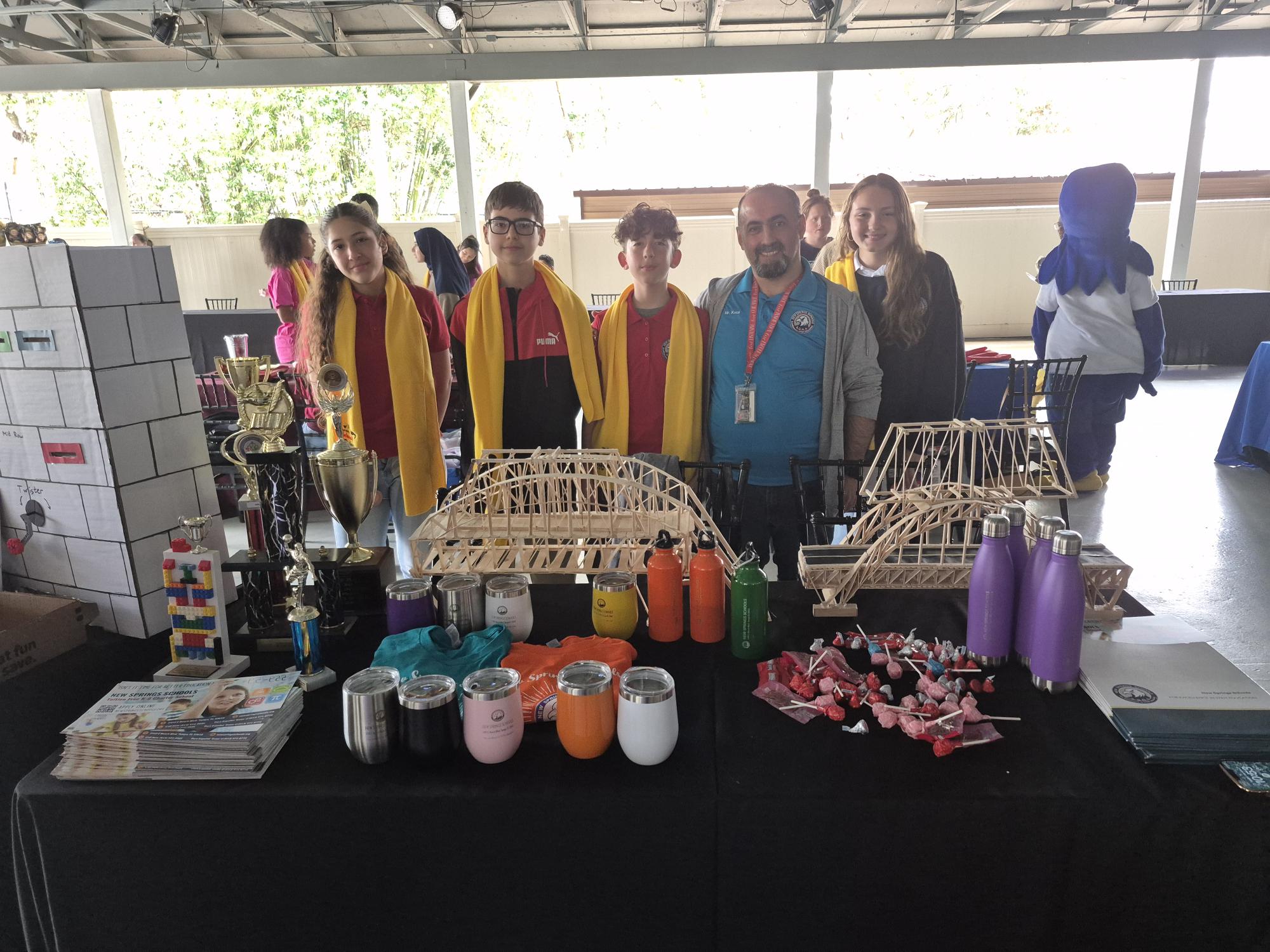
Students at New Springs Schools, a STEM charter school that serves students ages 5-14, show off some recent class projects at the School Choice Safari in Tampa.
During the zoo event, Garcia personally escorted parents with specific questions to the tables where they could get answers.
One of them, Hugo Navarro, recently moved to Tampa from Southern California to start a new job for a national investment firm. His wife, who had remained with their three kids in California, had already started researching schools online, but Navarro wanted to get an in-person look at providers and learn more about state education choice scholarships before their 7-year-old son starts school in August.
On his wish list: academic rigor, a focus on the basics, and a diverse student body.
“Academic ratings, that’s our number one thing,” he said.
A Catholic school that offers academic excellence was also a contender, though a secular school wouldn’t be a dealbreaker if it had a reputation for strong academics.
Garcia and Clark both said that as new generations of parents grow more comfortable selecting education options, they see the navigators’ role becoming more relevant, not less.
“Parents can use online tools like google to search for schools, but the depth of what parents actually want, and our highly trained knowledge of a variety of educational issues means that as choice programs grow, the need for our parent concierge services will continue to grow as well,” Clark said. “There are exciting times ahead for families, and those who support them.”
As the number of schools and a la carte learning options grows, Garcia said, families will need information to better customize learning for their children.
“This is a daunting task, even for the most seasoned parents,” she said. “At GuidEd, we see a growing need for unbiased education advisers to ensure a healthy and sophisticated market.”
Garcia compared the search for educational services to buying a home.
“A family is not likely to make a high-stakes decision, like buying a home, by relying on a simple Zillow search,” she said. “Instead, they use the Zillow search to help them understand their options and then rely on a Realtor to help guide them through the home- buying process, relying on their trusted, yet unbiased expertise. We see ourselves as the "Realtor" in the school choice or education freedom landscape.”
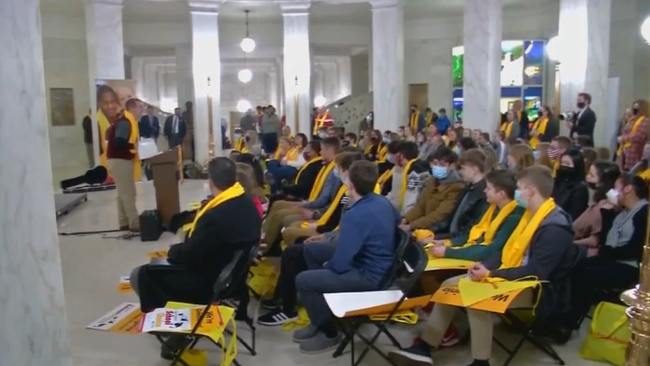
Students, teachers and lawmakers gathered Thursday at the West Virginia Capitol rotunda to rally for more educational options for families as part of National School Choice Week.
Editor’s note: The following represents an excerpt of remarks delivered by Garrett Ballengee, executive director for the Cardinal Institute for West Virginia Policy, at the closing celebration of West Virginia’s National School Choice Week festivities at the state Capitol.
First, I would like to thank everyone who attended today’s closing celebration of this week’s National School Choice Week activities in West Virginia. Today’s event is but one of thousands of events happening across the country this week celebrating education choice, celebrating what is, at its essence, hope.
It’s been a sincere pleasure seeing the celebrations grow in West Virginia from a small event in Harper’s Ferry with about 30 attendees to filling the 700-seat auditorium at the Charleston Civic Center in consecutive years to this year in which we had the state’s first-ever school choice fair with 17 participating schools and education service providers showing up with a packed room full of enthusiastic families, children, and student performers.
As choice continues to blossom in our state, I expect these events to grow and evolve as our state’s education system evolves alongside West Virginia’s own education system as it evolves into a 21st Century education ecosystem which places students and parents at the focal point.
Now, there is something different about this year’s celebration, isn’t there? Not just size. Not just venue.
There is hope in the air. You see, this is the first time in which we’ve celebrated not just an idea, not just a concept, not just an abstraction, not just a longing for something that some other state has that West Virginia does not yet have.
For the first time, we are celebrating National School Choice Week in West Virginia amidst a legal and policy environment that allows for and promotes education freedom. What a beautiful 180-degree turn the state has made since our first NSCW celebration back in 2016.
Now, those children and families in other states look to West Virginia for guidance, for ideas, for inspiration on how best to catalyze opportunity for every child, regardless of neighborhood, ZIP code, or financial circumstance. For the first time, West Virginia is the envy of education reformers across the country and that is something that we can be very, very proud of as West Virginians.
This state, our humble West Virginia, has taken the country’s biggest step yet towards recognizing the reality that different children need different things, yet each has – and is – a gift to be supported and nurtured. As Alan Bloom once defined education as the movement from darkness to light, West Virginia’s spark will burn very bright indeed.
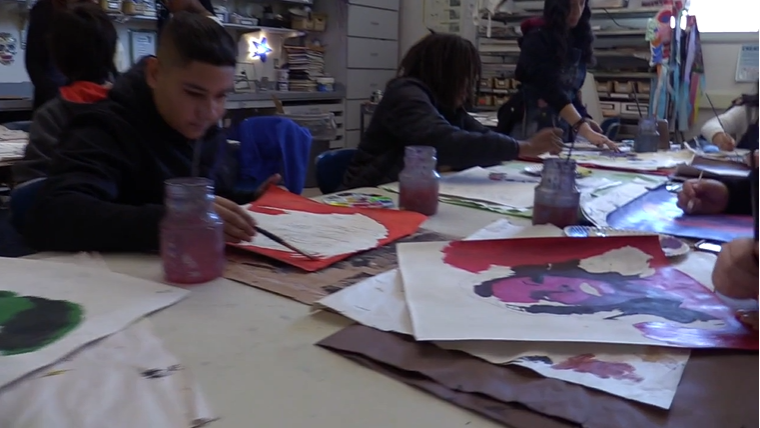
Students at Betsy Ross Arts Interdistrict Magnet School in New Haven, Connecticut, study dance, theater and visual arts with professional artists as well as certified teachers.
Editor’s note: This commentary from Danielle Gregory-Williams, a magnet recruitment specialist in New Haven, Connecticut, makes the point that education choice is alive and well in public schools, too, rounding out our coverage of National School Choice Week. It appeared this week on the New Haven Register.
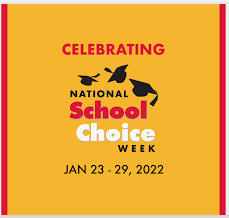 National conversations about school choice often fixate on private schools or vouchers, but, in New Haven, public school choice is a critical component of efforts to expand opportunity for every child. Having choices makes public education more diverse — and that’s a great thing.
National conversations about school choice often fixate on private schools or vouchers, but, in New Haven, public school choice is a critical component of efforts to expand opportunity for every child. Having choices makes public education more diverse — and that’s a great thing.
As an umbrella term, school choice means giving families the opportunity to select from an array of learning options, so they can choose the one that best fits their child’s academic needs. Just as no two children are the same, no two public schools are the same either.
In New Haven, school choices include an incredible diversity of public options, including citywide and interdistrict magnet schools with intentional specializations, neighborhood schools rooted in local communities, and public charter schools.
Diverse school offerings honor students’ differences, ensuring that curricular programs meet kids’ specific needs and create multiple pathways to academic and career success. In particular, citywide and interdistrict magnet schools serve to reduce racial and economic isolation, bringing together students from many New Haven neighborhoods.
Just consider a few examples of what New Haven offers: At Barack H. Obama Magnet University, students focus on a STEM-curriculum and effective communication, receiving language instruction in Chinese and American Sign Language. At Betsy Ross Arts Interdistrict Magnet School, students study dance, theater and visual arts with professional artists as well as certified teachers.
To continue reading, click here.
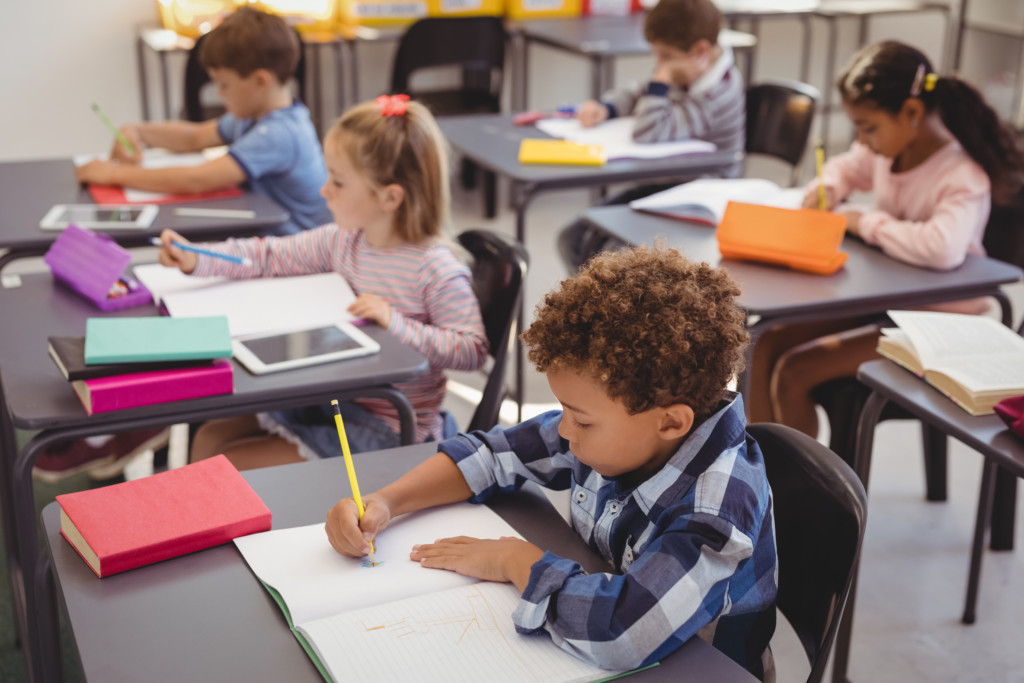 Editor’s note: In today’s post, Michael Barrett, Associate for Education for the Florida Conference of Catholic Bishops, celebrates National School Choice Week by explaining why education choice is important on many fronts. To hear a 2021 podcast with Barrett and Step Up For Students’ president Doug Tuthill, click here.
Editor’s note: In today’s post, Michael Barrett, Associate for Education for the Florida Conference of Catholic Bishops, celebrates National School Choice Week by explaining why education choice is important on many fronts. To hear a 2021 podcast with Barrett and Step Up For Students’ president Doug Tuthill, click here.
 I recently was asked why the Catholic Church supports school choice policies. It’s a valid question, because educational choice might not be the first policy issue that comes to mind when considering the Catholic Church’s work in public policy.
I recently was asked why the Catholic Church supports school choice policies. It’s a valid question, because educational choice might not be the first policy issue that comes to mind when considering the Catholic Church’s work in public policy.
Hot-button issues such as abortion or immigration often receive more attention. However, the Catholic Church has long-supported school choice policies and offers a strong justification for supporting school choice regardless of whether one is Catholic.
So, during National School Choice Week, I offer it here in the hopes that it might continue to benefit discussions surrounding Florida’s education policy.
School choice policies promote human dignity by protecting the right of all people to obtain a quality education from a school that best suits his or her particular needs. Human dignity is preeminently important, because each and every person has inherent dignity by virtue of his or her existence.
Human rights are based on this inherent dignity and are thus universal, inviolable, and inalienable. The right to an education and to educational opportunities that allow a person to reach his or her full potential is derived from this principle of human dignity.
School choice policies also promote the principle of subsidiarity, which is the proper ordering of political governance within society. Parents are the primary and principle educators of their children and should be empowered with the ability to educate their children as they see fit.
However, while the primary duty of educating children lies within the family, parents also need help from society. Therefore, families, local communities, and various levels of state and local government all have their appropriate place in the implementation, governance, and imparting of education.
In Florida, school choice programs promote subsidiarity by recognizing the importance of parental empowerment by providing hundreds of thousands of families with real educational choice.
School choice policies promote the common good by allowing students to obtain an education in an environment where they can flourish intellectually, emotionally, and spiritually. The common good is the total of social conditions, which allow people, as groups or individuals, to flourish and reach their fulfillment more fully and easily.
Better educated students lead to better educated societies, which hopefully leads to a more productive and peaceful society and a more just distribution of goods. Florida’s school choice programs promote the common good by providing students with the opportunity to find the educational environment in which they can flourish.
Finally, school choice programs promote solidarity because they primarily serve low- and middle-income families and children with unique abilities.
Solidarity is a firm and persevering determination to commit to the common good. Through solidarity, we commit ourselves to the good of our neighbor with readiness to put the needs of others above our own rather than seeking to exploit or manipulate others.
Without school choice programs, many families may not have the financial means to enroll their children in a private school or even have the option to send their child to a different school whether it be public, charter, or private. If only one educational option exists, and that option is a poor fit for a student, a parent has no choice but to accept a substandard education.
Florida’s school choice programs promote solidarity by providing all families with the opportunity to provide their child with an educational option that fits his or her particular needs.
In Florida, we are on the cutting edge of the school choice movement. We are one of the only states in the country where hundreds of thousands of parents are truly empowered with real educational choice.
This National School Choice Week, let’s celebrate Florida’s commitment to the principles of human dignity, subsidiarity, the common good, and solidarity.
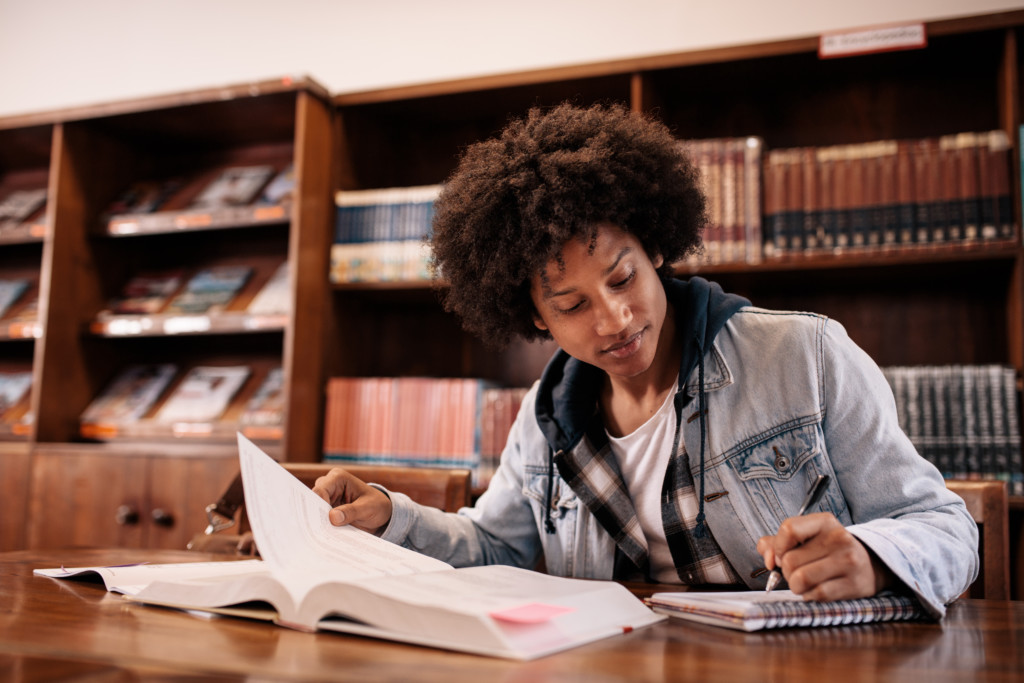
Libraries and dinner tables may be secondary to choosing a traditional public, charter, or online school, but they are critical learning choices too, alluding to the increasingly blurred line between home life and external activities like work or school.
Editor’s note: This commentary from Andrew Campanella, president of National School Choice Week, answers the question: Do we need to keep talking about education choice?
 During the pandemic, learning pods took place in the strangest places, like roller skating rinks and karate studios. Today, many parents are still using learning pods, and exploring homeschooling and online schooling, too.
During the pandemic, learning pods took place in the strangest places, like roller skating rinks and karate studios. Today, many parents are still using learning pods, and exploring homeschooling and online schooling, too.
In this changing landscape, does it make sense to talk about school choice anymore? Should we talk about parental choice or learning choice or educational freedom instead?
This National School Choice Week, I tip my hat to the people making learning possible everywhere. I believe this phenomenon — learning diversifying, often outside traditional buildings and classrooms — will only increase in the future.
Here are some of the places education is being celebrated this week, and why families across America will hear the schools, parents and organizations that celebrate School Choice Week continue to raise awareness about “school choice” even as education becomes less tied to brick-and-mortar school buildings.
First, some much-deserved hat-tipping.
This School Choice Week, we celebrate traditional public schools, like Burbank Middle School, whose talented students recorded the official National School Choice Week 2022 dance. We celebrate charter schools, like the members of the North Carolina Association for Public Charter Schools, who are gathering in their state capital for a school fair calling attention to choice’s impact on student happiness. We celebrate magnet schools, like those in Connecticut, that are raising awareness of the power of diverse public education tracks for middle and high schoolers.
We celebrate private schools, like those participating in multi-school choice fairs in more than 20 states, spreading their missions and scholarship opportunities to thousands of families. We celebrate online school students and teachers as well, like those at Reach Cyber Academy in Pennsylvania, who are planning field trips for online students throughout the state to go snow tubing together.
And, of course, we celebrate homeschooling families, especially the thousands of new ones this year, who have met the challenge of unfinished learning and given their all to help kids grow.
There are also unexpected, sometimes overlooked places to celebrate learning this School Choice Week. There are parents reading stories to their children before bed or having enriching conversations as a family at dinnertime. These little ways that families choose to participate in their children’s education add up, eventually making a substantial difference in a child’s learning experience and even grade-point average and vocabulary.
And there are libraries providing free books, computer access and tutoring to kids. We’re proud that more than 200 such libraries have celebrated School Choice Week with us since 2019.
Libraries, dinner tables, bedtime routines — these aren’t what people usually mean by school choice. They are secondary to whether you choose a traditional public, charter, or online school. But they are critical learning choices too. And they allude to the increasingly blurred line between home life and external activities like work or school.
Classroom walls are dissolving, and learning is becoming increasingly diversified in when and how it takes place. Even as the vast majority of American families may continue to choose a traditional public school environment, hybrid learning is here to stay. Families are saying yes to flexibility, and yes to more learning resources everywhere.
So, why are we still celebrating School Choice Week, rather than Parental Choice Week or Learning Choice Week or Education Freedom Week?
School has always been a bigger, and more inclusive, idea than many people realize. As a reference to a place of learning, “school” stems from the Greek scholē, meaning leisure. School means time and space for the fun of discovering and exploring how the world works.
School is a life experience, not walls. School choice isn’t and has never been just about access to private or charter schools. It’s about all kids in America being able to take advantage of the learning spaces and supports that help them discover their identity and their relation to the world around them.
What’s more, over the last 20-plus years, school choice has become embedded in public consciousness — even becoming an official part of the Associated Press style guide for journalists. The term has evolved over time to encompass changing, growing choices — like transfer options in the public school sector. The term is simple enough and descriptive enough that people across all 50 states have a natural understanding of its meaning.
School isn’t just a neighborhood building. It’s what’s happening in homes, on computers and on field trips across America every week. It’s easy to forget what a great big word “school” is, which is one more reason to talk about it this National School Choice Week.
I hope you join us in celebrating learning this week — you’ll find it everywhere.
National School Choice Week The year 2022 arrived just after the second anniversary of the first American COVID-19 case being announced. A great deal has changed over the last two years, including a very large rise in multi-vendor education in the form of pods and tutors:
The year 2022 arrived just after the second anniversary of the first American COVID-19 case being announced. A great deal has changed over the last two years, including a very large rise in multi-vendor education in the form of pods and tutors:
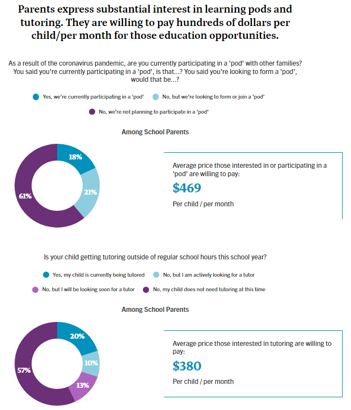 This is very significant and accelerated a pre-existing trend. For decades upper income Americans enrolled their children in custodial schools but spent more and more on enrichment outside of school.
This is very significant and accelerated a pre-existing trend. For decades upper income Americans enrolled their children in custodial schools but spent more and more on enrichment outside of school.
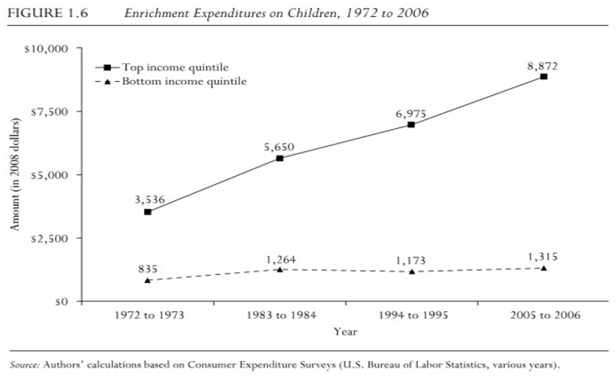 These families used custodial schools but they didn’t entirely rely upon them: their children got tutoring, participated in club sports, and a variety of extra things. When the pandemic struck families discovered they couldn’t necessarily rely upon the public education system at all, and families created supplemental pods in order to combat the deficiencies of impromptu digital learning.
These families used custodial schools but they didn’t entirely rely upon them: their children got tutoring, participated in club sports, and a variety of extra things. When the pandemic struck families discovered they couldn’t necessarily rely upon the public education system at all, and families created supplemental pods in order to combat the deficiencies of impromptu digital learning.
About 15% of parents switched schools during the first pandemic, about twice the normal rate, and matters continued to evolve from there. Home-schooling surged. Lawmakers, responding to constituent demand, passed a variety of new choice programs and expanded existing programs. Charter schools gained 240,000 students in the first year, while districts lost 1.45m.
Pods, both supplemental and full time, have joined the mix of options available to American families. While many decry the advent of pods citing equity concern, the issue is not that well-to-do families have access to them, but rather that low-income families have less access. Public policy changes will be needed to equalize access, but many American parents aren’t waiting on the glacial pace of state politics.
Stay tuned to this channel for further updates. The best is yet to come.
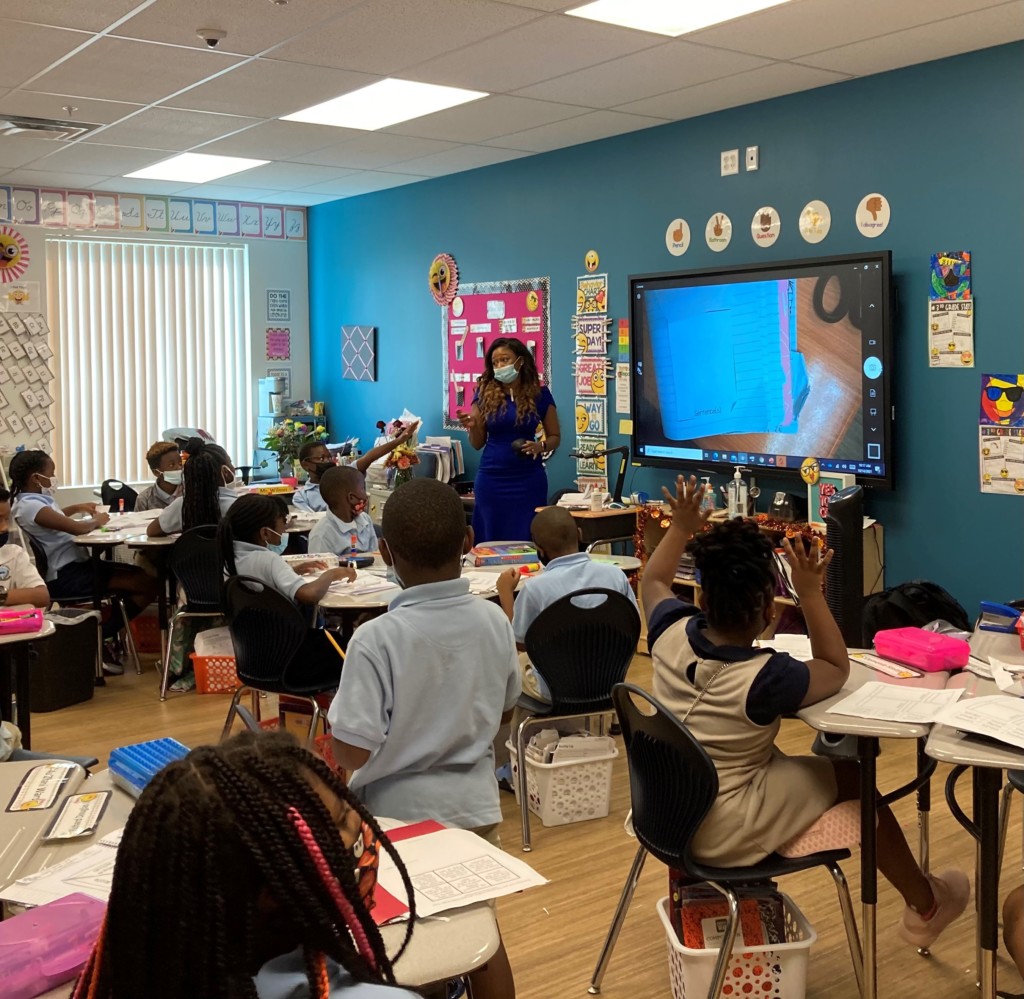
Charter schools like Somerset Academy Eagle Campus in Jacksonville, Florida, which focuses on academic excellence, leadership development and personal responsibility, remained the most popular school choice category, growing 3.9% to 341,926 students.
 Editor’s note: reimaginED kicks off National School Choice Week with an update on education choice enrollment across the state of Florida. Patrick Gibbons, a member of Step Up For Students’ policy and public affairs team, produces this post annually, along with the changing landscapes document that accompanies it.
Editor’s note: reimaginED kicks off National School Choice Week with an update on education choice enrollment across the state of Florida. Patrick Gibbons, a member of Step Up For Students’ policy and public affairs team, produces this post annually, along with the changing landscapes document that accompanies it.
Nearly 1.6 million K-12 students, or 48.1%, attended a school other than a traditionally assigned neighborhood school during the 2020-21 school year, up from 45% from the previous year.
School choice enrollment in the Sunshine State grew by more than 40,000 students over the prior year and was driven by home education, full-time virtual education, the Family Empowerment Scholarship, and the Gardiner Scholarship (now called the Family Empowerment Scholarship for Students with Unique Abilities).
The Family Empowerment Scholarship grew by 105%, the Gardiner Scholarship by 44.5%, and home education by 33.3%.
Students enrolled in private schools through private pay declined by 18.4%, or by nearly 34,000 students. Despite the decline, private pay retained its fourth-place ranking. Career and professional academy enrollment declined by 14.7%, and magnet school enrollment declined by 11.7%.
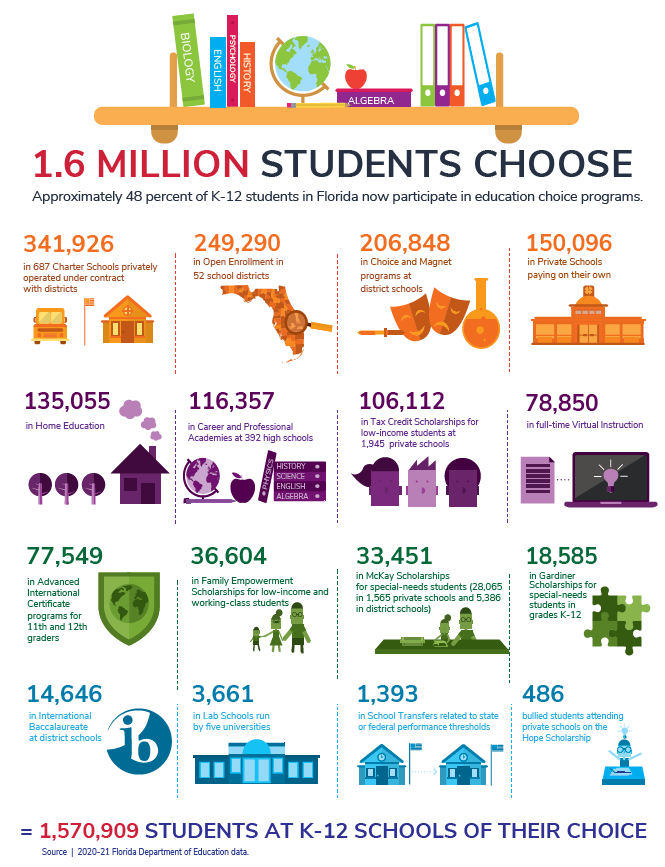
Charter schools remained the most popular school choice category, growing 3.9% to 341,926 students. Public school options took two out of the four top spots, with 249,200 students utilizing open enrollment and 206,848 students attending magnet schools.
The pandemic brought about modifications to the way Step Up For Students approaches Florida’s changing educational landscapes. This year, all students enrolled in full-time virtual schools offered by local school districts were included in addition to those enrolled in Florida Virtual School.
Students attending lab schools operated by Florida universities were counted only if they were not included in the count of students taking advantage of other education options, such as charter schools, the McKay Scholarship, or the Family Empowerment Scholarship. In past years, those students were subtracted from other categories and added into lab school enrollment.
Changing landscapes attempts to avoid duplicating student enrollment in other ways. For example, students funded through the Gardiner Scholarship who also were home educated counted toward the Gardiner Scholarship, but not toward home education. Students enrolled in a career or professional academy were counted only if they were not already included in the count of another school choice option.
The 2020-21 Changing Landscapes document was compiled using data from the Florida Department of Education Bureau of PK-20 Education Reporting and Accessibility and the Office of K-12 School Choice.
*Editors note: the percent of K-12 students enrolled in schools of choice in increased from 45 percent in 2019-20 to 48 percent in 2020-21.

Editor’s note: This commentary from Andrew Campanella, president of National School Choice Week, appeared Thursday in the Osceola News-Gazette.
If you’re reading this, chances are you’re a parent, or have friends or neighbors who are.
Baby Boomer, Gen X, or Millennial— the K-12 school scene has changed so much since we were kids. Understanding these changes can help moms and dads guide their children to greater learning, success, and happiness.
So here are the three biggest changes affecting education in Kissimmee and across the U.S. today, and what these changes mean for your family.
First, school choice opportunities have broadened over the last generation. That means parents have more options for where to send their children to school. For example: traditional public schools have adopted more flexible enrollment policies. Charter school laws have passed in 45 states, including Florida. More families are aware they can choose public magnet programs, where kids receive education with a special focus, like STEM or the arts.
Today, Florida’s state-run scholarship programs extend to students in families with modest incomes, with an Individualized Education Plan, or victims of violence in public schools, in addition to a few other student groups. Plus, a growing number of Florida families are choosing homeschooling.
To continue reading, click here.
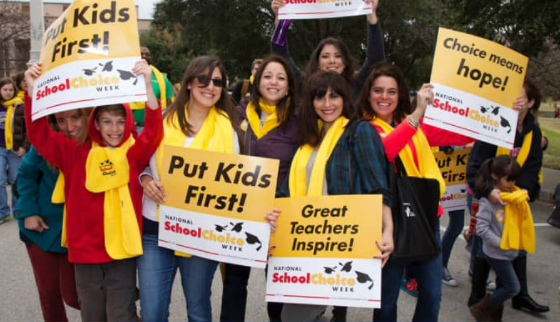 Editor’s note: This report from the organizers of National School Choice Week found that nearly 52% of parents in the United States have considered, or are considering, finding new schools for their children.
Editor’s note: This report from the organizers of National School Choice Week found that nearly 52% of parents in the United States have considered, or are considering, finding new schools for their children.
Frustrated by COVID disruptions to their children's schooling and seeking higher-quality education environments, nearly 14% of U.S. parents are currently considering finding new or different schools for their children, according to the results of a national survey released Monday by National School Choice Week.
An additional 38% of parents reported that within the past year, they chose a new school for at least one of the children in their home or considered doing so. In total, 51.7% of parents considered or are considering new schools for their children.
Notably, 62% of Black parents and 59% of Hispanic or Latino parents indicated that they considered or are considering new schools, compared with 47% of white parents.
The census-balanced survey of 2,715 parents of school-aged children aged 5-18, conducted January 3-6, 2022, indicated intense parent interest in school choice, which is the process of families searching for and choosing the traditional public, charter, magnet, private, online, or home learning environments that best meet the needs of their children.
Among the 48.3% of U.S. parents who are not considering new schools or did not within the past year choose or consider new schools, 18% indicated they were likely to start the process of searching for new schools for their children in advance of the 2022-2023 school year.
Thirty-six percent of parents reported that at least one primary reason for considering a new school was the "desire for a higher quality education" for their child(ren). Thirty-four percent said they considered new schools because "the pandemic and/or school COVID policies disrupted my child's education." Twenty-six percent of parents were "concern[ed] about school safety or bullying."
Parents indicated a willingness to consider a variety of different types of schools for their children. When asked to indicate all of the different types of schools they considered or would consider for their children, 38% indicated they considered or will consider a traditional public school within their school district; 35% considered a private or faith-based school; 32% considered a traditional public school in a different school district; 31% considered a public charter school; 26% considered a full-time online school; 25% considered full-time homeschooling; and 20% considered a public magnet school.
"For an increasing number of U.S. families, school choice is a necessity, as moms and dads search for learning environments where their children can best learn, thrive, succeed, and be happy," said Shelby Doyle, vice president of public awareness for National School Choice Week.
"Parents in many places have more school choice options today than at any time in history, and they are taking the initiative to find the right fit for their children. We encourage parents who want to look for new or different schools for next school year to start the school search process in January to make sure they have enough time to evaluate all of their options. Raising equal awareness about the traditional public, charter, magnet, private, online, and home-schooling options for families is the goal of National School Choice Week."
Parents can learn more about the school choice options during the annual celebration of National School Choice Week, which begins on January 23, 2022, or by using NSCW's free online resources for parents, which are available year-round at schoolchoiceweek.com.
National School Choice Week (NSCW) is a not-for-profit public awareness effort. Started in 2011, NSCW raises equal awareness of the traditional public, charter, magnet, private, online, and home education options available for families.
In addition to developing and providing the nation's largest year-round portfolio of free school search resources for families, NSCW collaborates with more than 26,000 schools, homeschool groups, and community organizations to plan positive, awareness-raising events and activities each January.